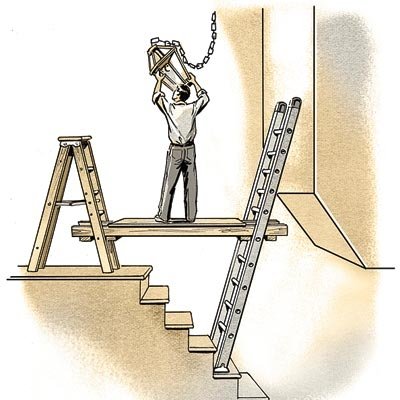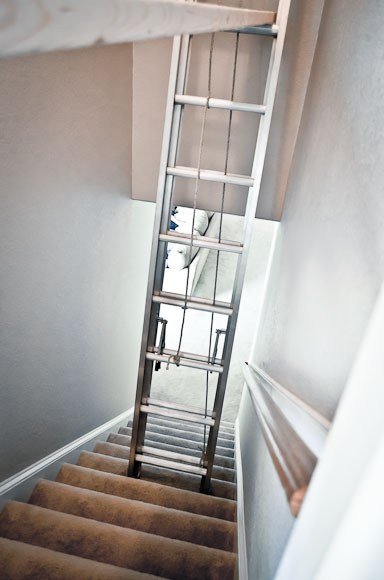Hi,
Just a quick Vid on one way to scaffold a stairwell to paint, it is, or has been pretty much done this way forever with the exception of large commercial jobs. There is the stair wedge which they have in the USA which i have yet to see here in Australia but this is the way it has been done here for donkeys years.
Now DO THIS AT YOUR OWN RISK - I take no responsibility for you breaking your neck. You will see in my own video i am very slow to move across this scaff setup for obvious reasons and some probably not so obvious. It is the one area in a home that people can not figure out how to do, i've had a number of other trades ask me how the hell i do it, and its quite simple really.
Nearly all stairwells are the same, they have stairs, and they have walls !!! Those walls generally have studs every 450mm or so, and because of the angle of the stairs, the ladder will not be putting much weight into the wall most will be downward force, so there is very small chance of it going through the wall - WHICH CAN HAPPEN IF YOU ARE A MORON !!!
So what is required is a couple of ladders in this scenario, one on the stairs folded outwards to the wall and jammed into one of the stairs (can't move) and a plank going through to another ladder which is placed on a landing, which is the end you climb on from.

If you are doing this in a townhouse i will generally use one ladder and cut down a good 6 inches from the top with a brush and roll from the ground with an extension, which gets all the gear out of the road quick smart so you can continue on with the rest of the house.
I actually have a fear of falling which for a painter can be my achilles heel at times. I feel this keeps me safe because I won't get up on something that isn't safe. I know what you're thinking that looks mad as hell what I'm doing there but there is always going to be parts of the job that can not be done text book correctly due to OH&S etc in domestic housing situations.

This house is actually a 3 level townhouse, so the first two levels there isn't much height as there is another set of stairs above you, but on the top level the gable ceiling provides for quite a nasty fall if you were to do so. This particular job was an empty house, which enables more spray work. Usually for a painter these days you will be doing a mixture of spray, brush and roll. I prefer to use spray cutting in, doors, ceilings (sometimes), and roll walls.
One of the advantages of spraying the edges, other than speed, is there is less of a chance of a thing called 'picture framing' on the wall, and this can be further reduced by using the fine finish tips that i talk about in my vid's.